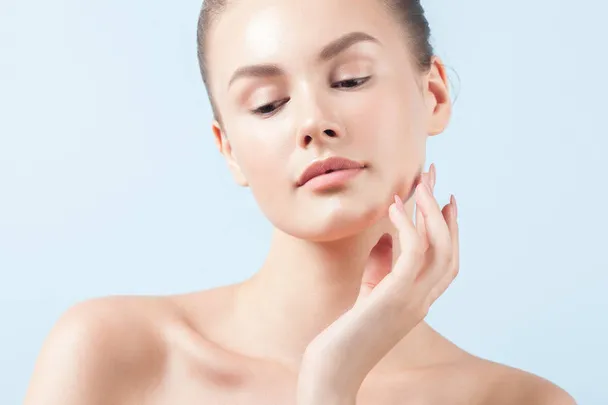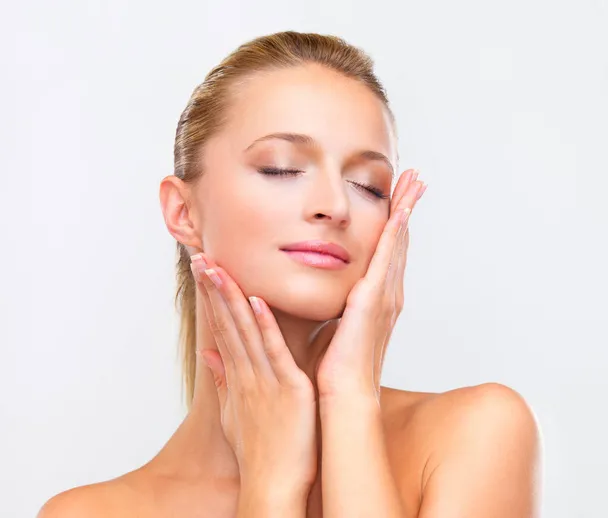6 Common Acne Triggers And How To Avoid Them
Acne is a common skin condition that affects millions of people worldwide. While genetics and hormonal fluctuations play significant roles in acne development, various external factors, known as acne triggers, can exacerbate breakouts. Understanding these triggers and learning how to avoid them is essential for managing acne effectively and promoting clearer, healthier skin.
Dietary Factors:
Diet plays a significant role in acne development, with certain dietary habits being linked to increased breakouts. Consuming foods with a high glycemic index, such as refined carbohydrates and sugary snacks, can lead to spikes in blood sugar levels. These spikes stimulate the production of insulin and insulin-like growth factor 1 (IGF-1), which can in turn increase sebum production and promote inflammation in the skin, contributing to acne breakouts. Additionally, dairy products have been associated with acne development due to their potential to influence hormone levels and increase sebum production. To minimize the risk of acne breakouts, it is advisable to opt for a balanced diet rich in fruits, vegetables, whole grains, and lean proteins. These nutrient-dense foods provide essential vitamins, minerals, and antioxidants that support skin health and may help reduce inflammation. Limiting the intake of refined carbohydrates, sugary foods, and dairy products can also help regulate blood sugar levels and decrease sebum production, leading to clearer, healthier skin.
Skincare Products:
Selecting the right skincare products is crucial for individuals with acne-prone skin, as certain ingredients can exacerbate breakouts. Skincare products containing comedogenic or pore-clogging ingredients can worsen acne breakouts by blocking pores and trapping oil and bacteria. To avoid this trigger, it is essential to choose non-comedogenic, oil-free, and lightweight formulations for cleansers, moisturizers, and makeup.
Non-comedogenic products are specifically formulated to minimize the risk of clogging pores and causing acne breakouts. These products undergo testing to ensure that they are less likely to block pores or contribute to the formation of comedones. Opting for non-comedogenic skincare products helps maintain clear pores and reduces the likelihood of acne flare-ups.
In addition to being non-comedogenic, it is important to choose oil-free formulations, especially for individuals with oily or acne-prone skin. Oil-free products are lighter in texture and less likely to contribute to excess oiliness on the skin. They provide essential hydration without adding additional oil, helping to balance the skin’s natural moisture levels.
Furthermore, selecting lightweight formulations for skincare products such as cleansers, moisturizers, and makeup can help prevent a heavy or greasy feeling on the skin. Lightweight products are quickly absorbed into the skin, leaving behind a smooth and comfortable finish without clogging pores or exacerbating acne breakouts.
When shopping for skincare products, it is essential to check product labels carefully and opt for gentle, fragrance-free options suitable for acne-prone skin. Fragrances and harsh chemicals can irritate sensitive skin and exacerbate acne breakouts. Choosing fragrance-free products reduces the risk of irritation and ensures that skincare products are gentle and suitable for sensitive or acne-prone skin.
By selecting non-comedogenic, oil-free, and lightweight formulations and opting for gentle, fragrance-free options, individuals with acne-prone skin can effectively manage their skincare routine and minimize the risk of acne breakouts. Consistent use of suitable skincare products helps maintain clear and healthy-looking skin while addressing acne-related concerns.
Stress:
Stress is a significant contributor to acne breakouts, as it can trigger hormonal fluctuations and increase inflammation in the body. When the body is under stress, it releases hormones like cortisol, which can stimulate the sebaceous glands to produce more oil, leading to clogged pores and acne flare-ups. Additionally, stress can weaken the immune system, making it more difficult for the body to fight off acne-causing bacteria.
To manage stress-related acne, it’s important to incorporate stress-reduction techniques into your daily routine. Practices such as mindfulness, meditation, yoga, and deep breathing exercises can help calm the mind and body, reducing stress levels and promoting relaxation. These techniques can also improve sleep quality, which is essential for skin health and acne prevention.
In addition to stress-reduction techniques, prioritizing self-care activities is crucial for managing stress-related acne. Engage in activities that bring you joy and relaxation, such as spending time outdoors, practicing hobbies, or connecting with loved ones. Establishing healthy coping mechanisms, such as journaling, exercising, or seeking support from a therapist or support group, can also help you effectively manage stress and its impact on your skin.
Creating a healthy work-life balance and setting boundaries to prevent burnout are essential for managing stress-related acne. Prioritize self-care activities, set realistic goals, and delegate tasks when necessary to reduce stress levels and promote overall well-being.
By practicing stress-reduction techniques, prioritizing self-care activities, and establishing healthy coping mechanisms, you can minimize the impact of stress on your skin and reduce the frequency and severity of acne breakouts. Taking care of your mental and emotional health is just as important as taking care of your skin, and incorporating stress management strategies into your daily routine can lead to clearer, healthier skin over time.
Hormonal Fluctuations:
Hormonal fluctuations play a significant role in acne development, particularly in individuals with hormonal acne. Changes in hormone levels, such as those occurring during puberty, menstruation, pregnancy, or menopause, can stimulate the sebaceous glands to produce more oil, leading to clogged pores and acne breakouts. Hormonal fluctuations can also increase inflammation in the skin, exacerbating acne symptoms.
To address hormonal acne triggers effectively, it is essential to consult a healthcare professional for personalized treatment options. Hormonal testing may be recommended to assess hormone levels and identify any underlying hormonal imbalances contributing to acne breakouts. Based on the results of hormonal testing and a comprehensive evaluation of your medical history and skincare concerns, your healthcare provider can recommend suitable treatment options.
Hormonal contraceptives, such as birth control pills or hormonal intrauterine devices (IUDs), are commonly prescribed to regulate hormone levels and manage hormonal acne. These medications can help stabilize hormone fluctuations, reduce sebum production, and improve acne symptoms over time. However, it’s essential to discuss the potential risks and benefits of hormonal contraceptives with your healthcare provider to determine if they are suitable for your individual needs.
In addition to hormonal contraceptives, other medications may be prescribed to address hormonal acne triggers. Oral medications such as spironolactone, which is a diuretic with anti-androgenic properties, can help regulate hormone levels and reduce acne breakouts, particularly in adult women with hormonal acne.
Topical treatments containing ingredients such as retinoids, benzoyl peroxide, or azelaic acid may also be recommended to complement hormonal therapy and address acne symptoms effectively. These treatments help unclog pores, reduce inflammation, and promote skin renewal, leading to clearer, healthier skin over time.
In summary, addressing hormonal acne triggers requires a comprehensive approach that may involve hormonal testing, personalized treatment options, and ongoing skincare management. By consulting a healthcare professional and exploring various treatment modalities, individuals can effectively manage hormonal acne and achieve clearer, healthier skin.
Environmental Factors:
Environmental factors can significantly impact acne breakouts, with pollution, humidity, and UV radiation being common triggers. Exposure to environmental pollutants can clog pores and increase inflammation in the skin, leading to acne flare-ups. Similarly, high humidity levels can exacerbate acne by promoting excess oil production and creating a breeding ground for acne-causing bacteria. Additionally, exposure to UV radiation from the sun can worsen acne symptoms and increase the risk of post-inflammatory hyperpigmentation.
To minimize environmental acne triggers and protect your skin from damage, it’s essential to take proactive measures:
Wear Sunscreen Daily: UV radiation from the sun can aggravate acne and cause inflammation in the skin. Protect your skin by wearing a broad-spectrum sunscreen with SPF 30 or higher every day, even on cloudy days. Choose a non-comedogenic, oil-free sunscreen formulation suitable for acne-prone skin, and reapply it every two hours, especially if you’re spending time outdoors.
Avoid Prolonged Sun Exposure: Limit your time in direct sunlight, especially during peak hours between 10 a.m. and 4 p.m. Seek shade whenever possible, and wear protective clothing, such as long sleeves, pants, and wide-brimmed hats, to shield your skin from UV radiation.
Keep Skin Clean and Hydrated: Pollution and environmental debris can accumulate on the skin’s surface, leading to clogged pores and acne breakouts. Cleanse your skin twice daily with a gentle, non-comedogenic cleanser to remove dirt, oil, and impurities. Follow up with a lightweight, oil-free moisturizer to keep your skin hydrated without adding excess oil.
Consider Protective Clothing: In polluted or humid environments, consider wearing protective clothing or accessories to minimize skin exposure to environmental pollutants and irritants. Lightweight, breathable fabrics like cotton or linen can help keep your skin cool and comfortable while providing a barrier against pollution and humidity.
Use Antioxidant Serums: Incorporating antioxidant serums into your skincare routine can help neutralize free radicals and protect your skin from environmental damage. Look for serums containing ingredients like vitamin C, vitamin E, or green tea extract, which can help strengthen the skin’s natural defenses and reduce inflammation.
By taking proactive steps to minimize environmental acne triggers and protect your skin from damage, you can help prevent acne breakouts and maintain clearer, healthier skin. Consistent sun protection, proper skincare, and mindful protection against environmental pollutants are essential for managing acne and promoting skin wellness.
Identifying and avoiding common acne triggers is essential for managing acne effectively and maintaining clear, healthy skin. By addressing dietary factors, choosing suitable skincare products, managing stress, regulating hormonal fluctuations, protecting against environmental factors, and practicing good skincare habits, individuals can minimize the risk of acne breakouts and promote skin wellness. For personalized acne treatment and management strategies, consult a dermatologist or healthcare professional.










